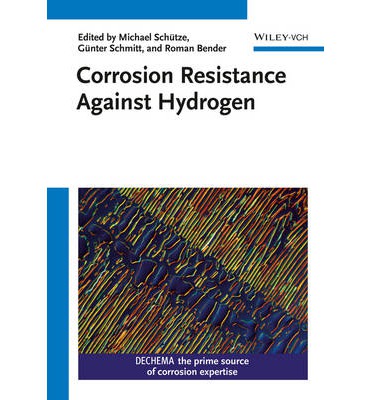
Corrosion Protection against Hydrogen
[Book Description]
Understanding how to protect materials against hydrogen attack is paramount to extending component lifetimes and reducing plant downtime. The materials selection process can sometimes become complex; usually involving multiple factors such as high strength requirements, operating temperature, high corrosion resistance, availability and cost. Hydrogen is used for numerous chemical processes, for example for the synthesis of ammonia and methanol as well as in hydrogenation processes such as for the production of gasoline or for fat hardening. In various metal extraction processes hydrogen is used as a reducing agent and is also used as a shielding gas for welding and metallurgical processes. The present handbook compiles new and updated information on the corrosion behavior of materials that are in contact with hydrogen or environments containing this gas. This compilation is an indispensable tool for all engineers and scientists dealing with corrosion problems in hydrogen containing environments of any industrial use.
[Table of Contents]
Preface vii
How to use the Handbook ix
Corrosion Resistance Against Hydrogen 1 (19)
Dr. P. Drodten
Dr. D. Schedlitzki
Dr. E. Wendler-Kalsch
A Metallic materials 20 (328)
Aluminum and aluminum alloys, copper and
copper alloys, iron, iron-based alloys
and steels, nickel and nickel alloys,
titanium and titanium alloys, zirconium
and zirconium alloys
B Nonmetallic inorganic materials 348(7)
Carbon and graphite, binders for building
materials, glass, fused silica and silica
glass, enamel, oxide ceramic materials,
metal ceramic materials
C Organic materials 355(14)
Thermoplastics, elastomers, thermoplastic
elastomers, duroplastics
D Materials with special properties 369(15)
Coatings and films, gaskets and packings,
composite materials
E Material recommendations 384(7)
Bibliography 391(24)
Key to materials compositions 415(42)
Index of materials 457(8)
Subject index 465

 新书报道
新书报道